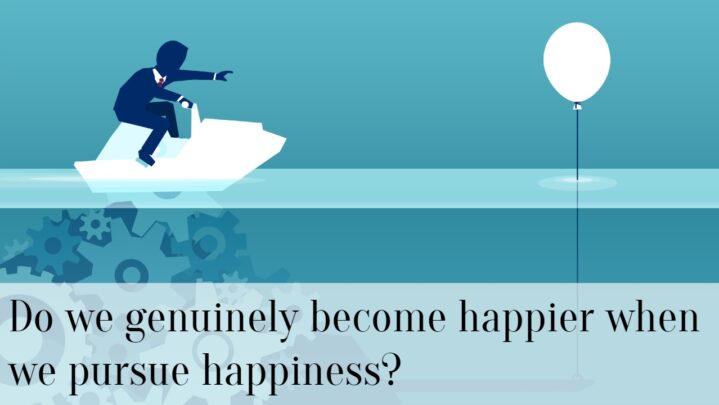Many people have the common objective of finding happiness, which is frequently regarded as essential to leading a fruitful and significant life. Recent studies, however, indicate that seeking happiness can have the reverse impact, increasing stress and sadness. Does seeking happiness genuinely result in happiness, then?
According to research, when we place an excessive amount of emphasis on finding happiness, we risk becoming fixated on the idea of happiness and beginning to see it as a target to be attained. As we seek a sense of happiness that is constantly just out of reach, this can create a perpetual state of stress and anxiety. Consequently, this emphasis on happiness could lead us to ignore the joys already there in our life at the current moment.
In addition, we could experience more stress and dissatisfaction when we attempt to restrain our emotions and repress unpleasant sentiments. This is because holding back unpleasant feelings can be mentally tiring and keep us from productively solving our problems.
According to research, pursuing a meaningful existence and discovering a sense of purpose can result in higher levels of overall well-being than trying to find happiness. This could entail partaking in pursuits that make us feel good about ourselves, including pursuing a profession or volunteering. Along with practicing mindfulness and self-compassion, it could also entail building meaningful relationships with others.
It’s significant to remember to understand it’s OK to feel sad, angry, or annoyed occasionally and that unpleasant emotions are a normal part of life. It is best to accept and acknowledge these emotions than to try to suppress them and to ask for help from others when necessary.
In conclusion, although pursuing happiness is a common objective, putting too much emphasis on it may result in higher stress levels and dissatisfaction.





